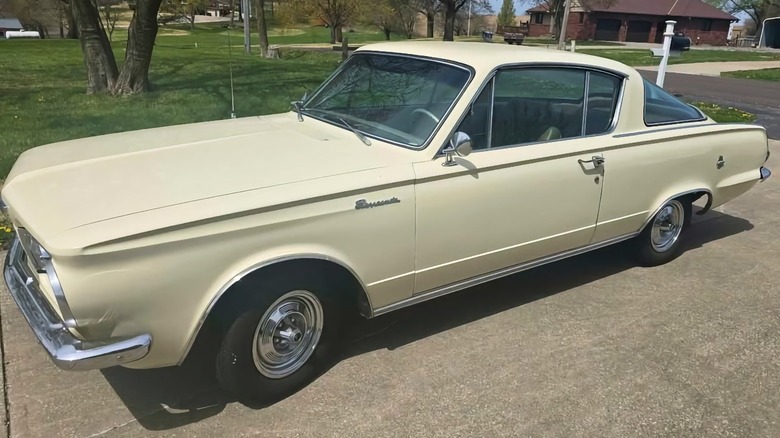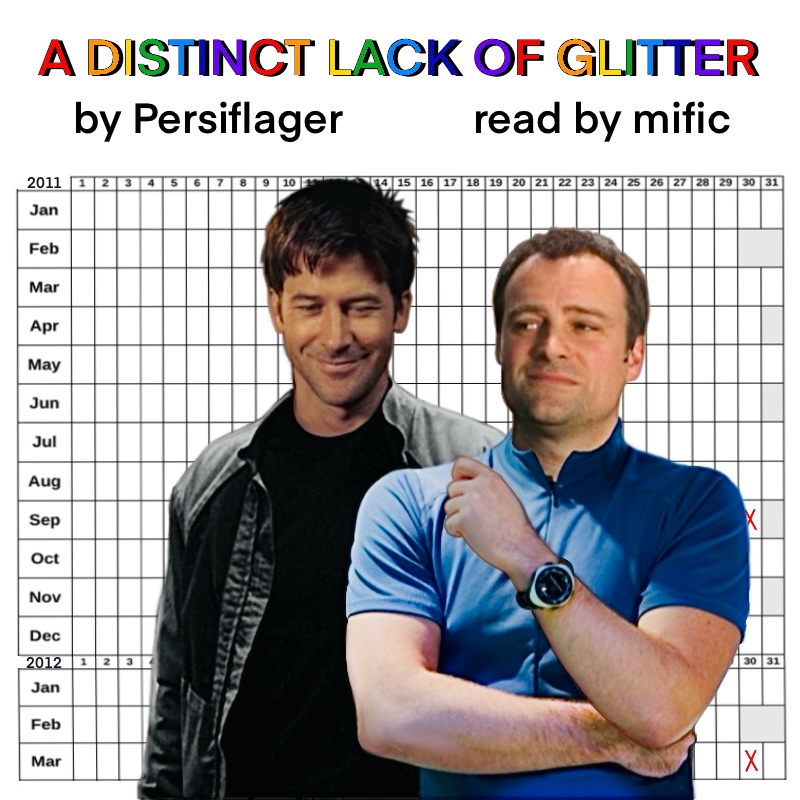
This isn't as discordant as Blood Royal was, but there is something that feels intentionally jarring about some of the music here. I don't dislike the song, but it took a bit to get accustomed to that element of it. Darnielle's annotations are entirely about his curiosity about the narrator, which is a return to a theme that I've noted many previous times in my notes. It's not just about the elliptical nature of his storytelling, but about the way in which these partial stories are presented as things he is merely glimpsing through a telescope or uncovering. There are determinate answers to all our questions about the narrator. There is a complete story there, and yet somehow, Darnielle only has fragmentary access to it.
In some ways, it is easier for me to get my mind around the less appealing—and more dismissive—Mamet view of fiction, as propounded in an SF Gate interview:
M.L.: There's a scene in "Oleanna" in which the woman says "I never told anybody this" — and then gets interrupted by the phone ringing. What was she about to say?
MAMET: Aha! Well, we don't know, do we?
M.L.: Well, / don't know. You don't either?
MAMET: No.
M.L.: I thought, in my naive way, that you're supposed to know as you're writing the line —
MAMET: Nope. (Laughing) We never got that far. We in the audience have to believe that she's about to make an extraordinary confession. What that confession is we don't get to find out.
M.L.: But you don't know —
MAMET: The woman doesn't actually exist, Mick. She's a bunch of black scribbles on a blank page.
M.L.: But when you're thinking about it as you're writing the play you're not really thinking about scribbles on a blank page. You are thinking of some kind of person, I would think.
MAMET: No. Black scribbles on a white page, that's all it is.
So, like, for Mamet, there are no answers that aren't on the page, but that's because all there is is words on the page. And I can get my head around that view, but I don't like that view. For Darnielle, the words on the page are all we know about the characters and the story, but somehow those words succeeded at singling out a fully defined and realized character and world, that has (unknowable) answers to all the questions we might ask. Which is a more appealing view of what happens, but also a much more perplexing one.

What better cure for melancholy than to serve under a captain whose obsessed pursuit of a leviathan will surely doom all involved?
Hell’s Heart by Alexis Hall
Characters/Pairings: John Sheppard/Rodney McKay
Rating: Explicit
Length: 18,910
Content Notes: No AO3 warnings apply
Creator Links: crysothemis on AO3, nny (villainny) on Audiofic Archive
Themes: Inept in love, Friends to lovers, First time, Humor, Pining
Summary: John never sleeps with anyone twice.
Reccer's Notes: Rodney (who's attracted to John) bumps into a few women, and then Ronon, leaving John's quarters. He clumsily asks John about these goings on, and mostly accidentally challenges John to have sex with him (because why not with Rodney if everyone else gets to?). It doesn't go swimmingly so Rodney demands a do-over, then another do-over, and another, because there's always something wrong with their encounters. This is partly as Rodney's bisexual and he mistakenly thinks John must be as well, and Rodney also manufactures "mistakes", until they're both entirely hooked and John's joining in with the pretense enthusiastically. It's hot, funny, and clever - a great read.
Fanwork Links: Do Over
And there's a podfic by nny
Title: Towards A Common Purpose
Fandom: The Fantastic Journey
Author:
Characters: Varian, Willaway, Fred, Liana, Halyana, Others.
Rating: PG
Setting: Turnabout.
Summary: The travellers must work together, alongside Queen Halyana’s people, to deal with the Complex and the computer’s mobile protectors.
Word Count: 350
Content Notes: Nada.
Written For: Challenge 507: Amnesty 84, using Challenge 65: Teamwork.
Disclaimer: I don’t own The Fantastic Journey, or the characters. They belong to their creators.
A/N: Triple drabble and a half, 350 words.

How can we leap back up? Get back on our feet, grab a cart, and start gathering the debris, both physical and emotional. Crush it into small stones, then pulverize them and as the dust settles, dance upon it. How do we do that? By returning to our child self, weathering our obstacles in good faith. For children operate in the perpetual present, they go on, rebuild their castles, lay down their casts and crutches, and walk again. [loc. 2494]
Another memoir from Patti Smith, author of Just Kids and M Train (the latter of which I have not read). Bread of Angels (the title refers to 'unpremeditated gestures of kindness') covers Smith's childhood, her years as a pioneering punk artist, and her 'walking away' from success to have a real life, marrying Fred 'Sonic' Smith and having children.( Read more... )
The Craft (1996): Well, we can add this to the list of things I'm glad I didn't get into back in high school. It would have been my whole personality for, like, a semester at least. I would have been even more insufferable than I was during my Buffy phase. New girl Sarah falls in with a clique of three witchy misfits who, empowered by her natural gift for the occult, start using magic to solve their problems in increasingly dangerous ways. This film is an utter delight. Extremely nineties, extremely teen angst (but in a fond, earnest way), too campy to be truly scary but with a really fun and satisfying horror aesthetic. I have so many feelings about those poor downtrodden, miserable girls who tasted power for the first time and went mad with it. There was also some very tempting hateshippy tension between Sarah and Nancy, the coven's leader. I had a feeling if I looked this up on AO3 it would prove to be one of those comparatively rare fandoms where F/F dominates, and I was right; there is nearly as much F/F as all other categories combined. (On the other hand, there are only 125 fics total, which feels very unfair. Filing it away in my mind as a Yuletide option for later this year.)
Ringu (1998): Ring fan mutuals, I'm so sorry, I have failed you. :( I think probably this one was just too similar to its remake for me to enjoy watching them this close together. There were parts I liked better in this older version - especially the close-ups on the dead faces instead of those annoying barely-visible flashes the 2002 version does, and the fact that the little boy seems happier and better-adjusted in this one - but the suspense wasn't there and the production was less glossy, and I ended up getting interrupted in the middle of the well-digging-out scene and haven't bothered to go back. I might try again in a few years once my memories have faded?
Wake Up Dead Man (2025): When cultish Catholic priest/culture warrior Monsignor Wicks is murdered, suspicion naturally falls on Father Jud, the recently assigned assistant priest who has made no secret of his opposition to Wicks' vicious preaching style. The brainwashed congregation all turn on him, but Detective Benoit Blanc is convinced of Father Jud's innocence and enlists his help to expose the true murderer.
I think this might be my favourite Benoit Blanc movie to date. It's not as clever as Knives Out or as funny as Glass Onion, but it has so much heart and soul and kindness to it, even and especially when its tongue is planted firmly in its cheek. It is neither pro- nor anti-Catholicism; Wicks is a vile character who embodies the bigoted, exploitative, self-aggrandising side of the Church, while Jud embodies the earnest love, faith and self-forgetfulness of the Church as it should be. Not to be weird about an imaginary Catholic priest but Jud is also kind of hot, in a vaguely Adam Driver-ish way that's mostly ears and angles. I enjoyed his screen presence a lot.
And Jesus entered the temple and drove out all who sold and bought in the temple, and He overturned the tables of the money-changers and the seats of those who sold pigeons. … And the blind and the lame came to Him in the temple, and He healed them. But when the chief priests and the scribes saw the wonderful things that He did, and the children crying out in the temple, “Hosanna to the Son of David!” they were indignant and said to Him, “Do You hear what these are saying?” And Jesus said to them, “Yes; have you never read, “‘Out of the mouth of infants and nursing babies You have prepared praise’?” (Matthew 21:12, 14-16)
It’s interesting that the one thing the religious leaders bring up to Jesus is the fact that the children are crying out, “Hosanna to the Son of David!” They don’t mention the merchants He drove out of the temple courts; they don’t mention the healings, though they saw them. Apparently they feel on safe grounds complaining about the children—who are recognizing Jesus as the promised Messiah of David’s family.
Jesus refers the leaders to Psalm 8:2b, which continues this way: “… because of Your foes, to still the enemy and the avenger.” According to Jesus, the praise of the children comes directly from God; the complaints come from God’s enemies.
And no surprise, for what the children are saying is “Hosanna”—which translates, “Save us!” Jesus has indeed come to save them and all of us as well. Through His death He will break the power of God’s enemies, including the devil; and through His resurrection He will give life to all God’s children who trust in Him.
WE PRAY: Thank You for saving me, Lord. Amen.
Lenten Devotions were written by Dr. Kari Vo.
Comment with Just One Thing you've accomplished in the last 24 hours or so. It doesn't have to be a hard thing, or even a thing that you think is particularly awesome. Just a thing that you did.
Feel free to share more than one thing if you're feeling particularly accomplished! Extra credit: find someone in the comments and give them props for what they achieved!
Nothing is too big, too small, too strange or too cryptic. And in case you'd rather do this in private, anonymous comments are screened. I will only unscreen if you ask me to.
Go!
There's still some stuff to be done - I need to rewrite the opening scene so it's more happening, less infodumping. And I think I want to write a snapshot at the end where Jenna is getting more or less fired from her job. Do I write her getting fired from her work, or do I just show her in the doghouse before she calls the Director of Crossover who gave her his number if she decided she wanted a change of scenery?
Choices choices.
It's about 60K finished, which isn't huge but isn't small potatoes either.
Artist:
Rating: Explicit
Length: 00:15:45
Characters/Pairings: John Sheppard/Rodney McKay, & Chuck
Summary: Having finally managed to wrench his boots off, John stood up and made his way to bed, discarding his shirt and trousers on the way like a stripper who was having an existential crisis and could no longer see the point in making a big production of it all.
( Read more... )
February 25th, 14:22
Hi, all, trying to get this posted in the same places I announced Aly's passing. There's a brand-new Collection at AO3 called "For Aly". It was created in response to some of her friends wanting a place to post stories or art in her honor. It's open to anyone and can contain fanfic or fanart (old or new), meta comments, or whatever you think Aly would have enjoyed. Just read the profile, which explains its purpose in more detail and has FAQ.
https://archiveofourown.org/collections/Aly_In_Memoriam
I've posted a story of what we did this past weekend to honor her.
Also, this weekend at our The Sentinel Chat, we'll be discussing one of Aly's stories, Polar Ice Caps. Here's an announcement link that explains where and when to find TS Chat and how the fic club works:
https://ts-news.livejournal.com/722001.html?utm_medium=email&utm_campaign=esn&utm_source=JournalNewEntry
Here's the link to Polar Ice Caps story. It's about 48K
https://archiveofourown.org/works/1134234
Finally, today is Aly's birthday. Hope you're enjoying it wherever you are. We're still celebrating you down here!
Ingredients:
2 cups all-purpose flour
4 teaspoon baking powder
1 tablespoon sugar
1 1/2 teaspoon garlic powder
1/2 teaspoon salt
1 1/2 cups shredded cheddar
1 cup milk
1 large egg
2 tablespoon butter
Instructions:
Preheat oven to 350° Grease/spray a loaf pan.
In a large mixing bowl, whisk together flour, baking powder, sugar, garlic powder and salt. Stir in shredded cheese. Set aside.
In a separate bowl, whisk together milk, egg & butter.
Add liquid ingredients to bowl of dry ingredients. Stir until just combined. Do not over mix.
Spoon/pour into loaf pan.
Bake for 45-50 minutes. Top should be a golden brown.
Cool on wire rack. Remove loaf from pan, slice & serve.
Easy — there's a number of them I like. Blades in the Dark and Monster of the Week/Thirsty Sword Lesbians/Apocalypse World/every other PbtA game out there come to mind, as do some lovely GMless indie ones (Stewpot! Rusalka! Fiasco! The Quiet Year!), BUT.
Honestly, okay, the top complaint I get about tabletop?
"I don't want to play online, I don't want to play with strangers, and I don't know anyone offline that wants to play with me, where do I even start?"
The answer for that is:
SOLO GAMES.
There's a bunch. I'm not talking about the weird D&D hacks, either, though those do exist (and I don't recommend them!). Solo tabletop as a genre has expanded a lot and there's a bunch of wonderful stuff out there now. I've played a few, but my favorite, by and large, is Thousand Year Old Vampire.
In TYOV, you play as a vampire made sometime in history. You pick when, give yourself a handful of possessions, and then roll dice and respond to prompts to figure out what happens to you. Do you survive and thrive, or do you die? What do you remember, what do you forget, and how do you adapt to being a vampire? It's extraordinarily well-done, and unlike a lot of journaling games, which can feel like writing prompts, it manages to capture the experience of roleplay extremely well. I played it for the first time a couple of years ago, and ended up documenting what happened to a Roman peasant girl as she lived through the collapse of the empire and into the Middle Ages. Some of the choices I was faced with and things that my character had to do were among the hardest I've ever made as a player, and it required a great amount of consideration and thought to move from point A to point B. The game broke my heart (in a good way), and I highly recommend it. It is, to this day, one of my favorite games. ♥
In non-Talking Meme Month news: reveals happened for the January round of a remix exchange I'm involved in, so I now have something new on AO3 that is (surprise!) not rated E.
And I Awoke on the Cold Hill's Side (rated T, 7.5k words) is a love letter to growing up queer in Salt Lake. It's set around the time that I would have been in undergrad. It's not perfect (what is?), but I hit the mark for what I set out to do, and, well, yeah. People familiar with the valley can probably pinpoint exactly which warehouse I'm talking about for where the party toward the middle of the piece takes place.
...I also have another piece up that is, uh, rated E. Slaying the Dragon (E, 14k words) is about grief and how we recover from it and come back to ourselves. It's set in the same universe as The Road Through the Mountains, though it's obviously not the same characters or set-up, and no familiarity with it is required. ♥
Not much happening. Have thus far been ghosted or rejected by every job I've applied to. I feel mostly okay about that. I have some freelance work lined up for the fall (we're drawing up contracts), so I am perhaps less worried about money coming in than I should be. Still noodling on various and sundry stuff; been dealing with some pretty awful chronic pain things lately so that's taken most of my focus, and I'm trying to like, gently remind myself that I can in fact take this time to simply Be and not worry about, you know. Everything.
( talking about FOSS/software stuff, probably not interesting to most people. )




